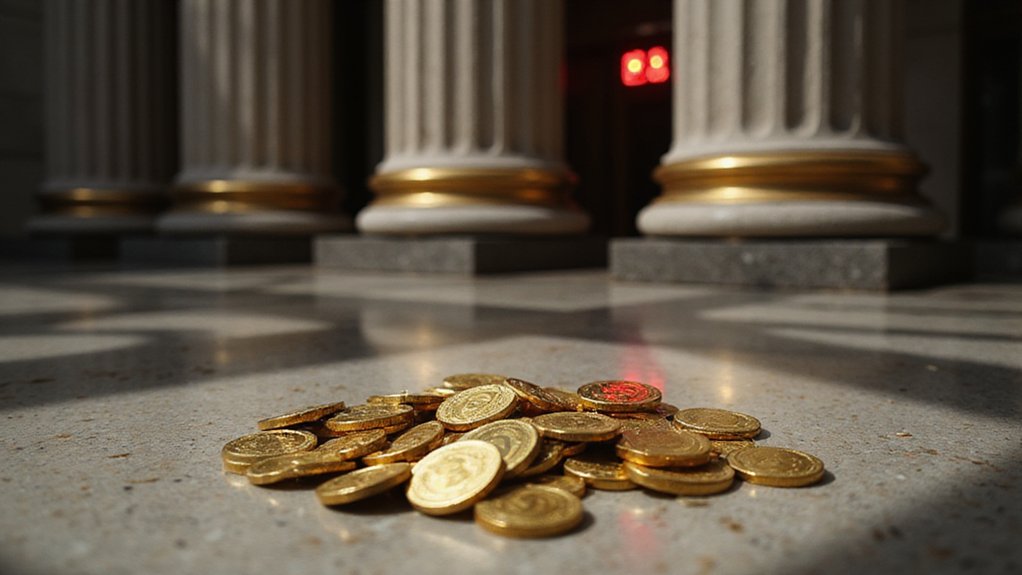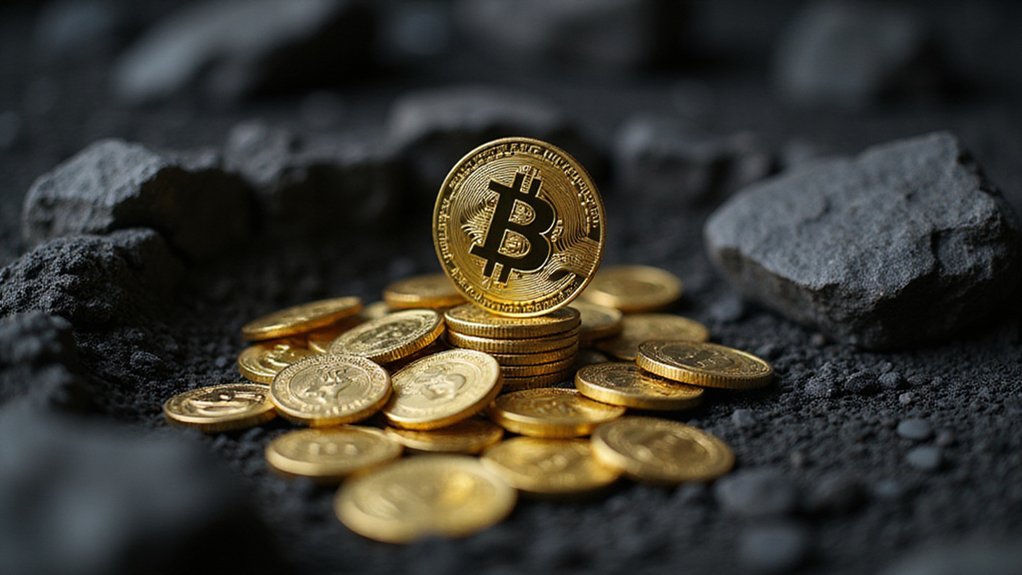More than 110 crypto firms and investors have launched a coordinated assault on Capitol Hill, demanding that Senate leaders incorporate explicit developer protections into any forthcoming market structure legislation—or face the prospect of industry-wide revolt.
The coalition reads like a who’s who of crypto royalty: Coinbase, Andreessen Horowitz, Kraken, and the Solana Foundation, among others. These aren’t scrappy startups pleading for regulatory mercy—they’re billion-dollar entities wielding considerable political influence. Their unified message to Senate leadership is invigoratingly direct: protect developers writing non-custodial software, or watch the industry pack its bags for more accommodating jurisdictions.
The crypto elite have issued their ultimatum: shield developers from regulatory overreach, or lose America’s blockchain future to friendlier shores.
The timing proves strategically astute. The Senate Banking Committee released its crypto market structure discussion draft in July 2025, with stakeholder feedback due by August 5th. The House had already passed the Digital Asset Market Clarity Act with bipartisan support earlier this year, creating momentum that savvy industry players are now attempting to harness.
At the heart of their demands lies a fundamental question: should developers creating decentralized protocols face the same regulatory burden as traditional financial intermediaries? The coalition emphatically argues no, seeking “safe harbor” provisions that would shield software creators from securities law violations while they build the infrastructure of tomorrow’s financial system.
Their concerns aren’t entirely theatrical. Regulatory uncertainty between SEC and CFTC jurisdiction creates genuine legal risks for developers who might inadvertently violate securities laws while writing open-source code. This jurisdictional confusion (a bureaucratic specialty, one might observe) threatens to stifle the very innovation that could maintain America’s technological competitiveness. The discussion draft specifically protects developers from being classified as money transmitters for facilitating distributed ledger services. The coalition’s advocacy takes on added urgency as they push for a single national standard to prevent the chaos of conflicting state-by-state crypto regulations.
The coalition’s threat of potential offshore migration carries weight in an increasingly global marketplace where regulatory arbitrage determines corporate domiciles. Singapore, Switzerland, and other crypto-friendly jurisdictions actively court blockchain companies with clearer regulatory frameworks. Institutional adoption continues to strengthen as compliance frameworks provide the clarity that billion-dollar entities require for sustained market participation.
Senate Banking Committee members now face a delicate balancing act: crafting legislation that protects investors without strangling innovation. The White House’s anticipated extensive crypto policy report will likely influence this equilibrium further.
Whether senators heed the coalition’s ultimatum—or call their bluff—will determine whether America’s crypto future unfolds on Capitol Hill or in more receptive foreign capitals.








